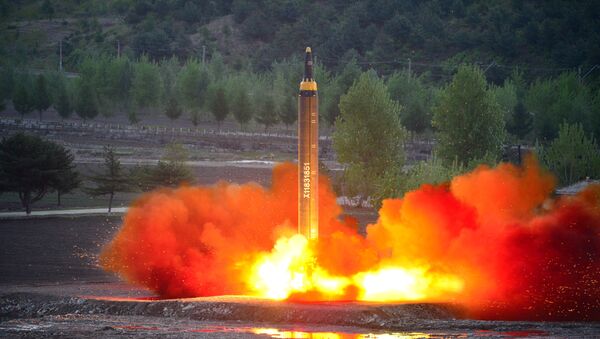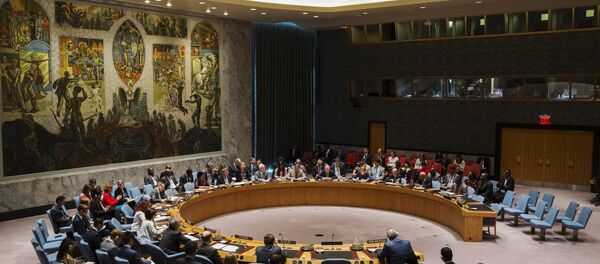North Korea is continuing its development of a missile capable of striking the US mainland, despite UN sanctions and international calls for denuclearization.
Pyongyang has even strained ties with former ally China, which has asked the North to rein in its weapons activities; it launched a missile test on Sunday as Chinese President Xi Jinping prepared to host a summit showcasing the One Belt, One Road initiative designed to expand trade throughout the Asian continent.
Washington has warned North Korea that the "era of strategic patience" they enjoyed under former President Barack Obama would not continue under current President Donald Trump.
The US has steadfastly refused to rule out military action against the Democratic People’s Republic of Korea (DPRK), and has sent a nuclear-powered missile-armed submarine and a Navy carrier strike group to the Korean Peninsula as a show of force.
Annual joint military drills with South Korea and Japan have been viewed by the North as a dress rehearsal for invasion.
The DPRK’s test-launch on Sunday was "successful in flight," according to South Korean Defense Minister Han Min-koo.
He added, "It is considered an IRBM (intermediate range ballistic missile) of enhanced caliber compared to Musudan missiles that have continually failed," according to the Japan Times.
Han answered in the affirmative when asked whether the North’s missile program was developing faster than Seoul had predicted.
IRBMs are designed to travel from 1,860 to 2,485 miles.
In late April, Trump told Reuters "There is a chance that we could end up having a major, major conflict with North Korea. Absolutely … We'd love to solve things diplomatically but it's very difficult."
He later told Bloomberg that he’d be "honored" to meet Kim under the right circumstances, but hasn’t clarified what those circumstances are.




